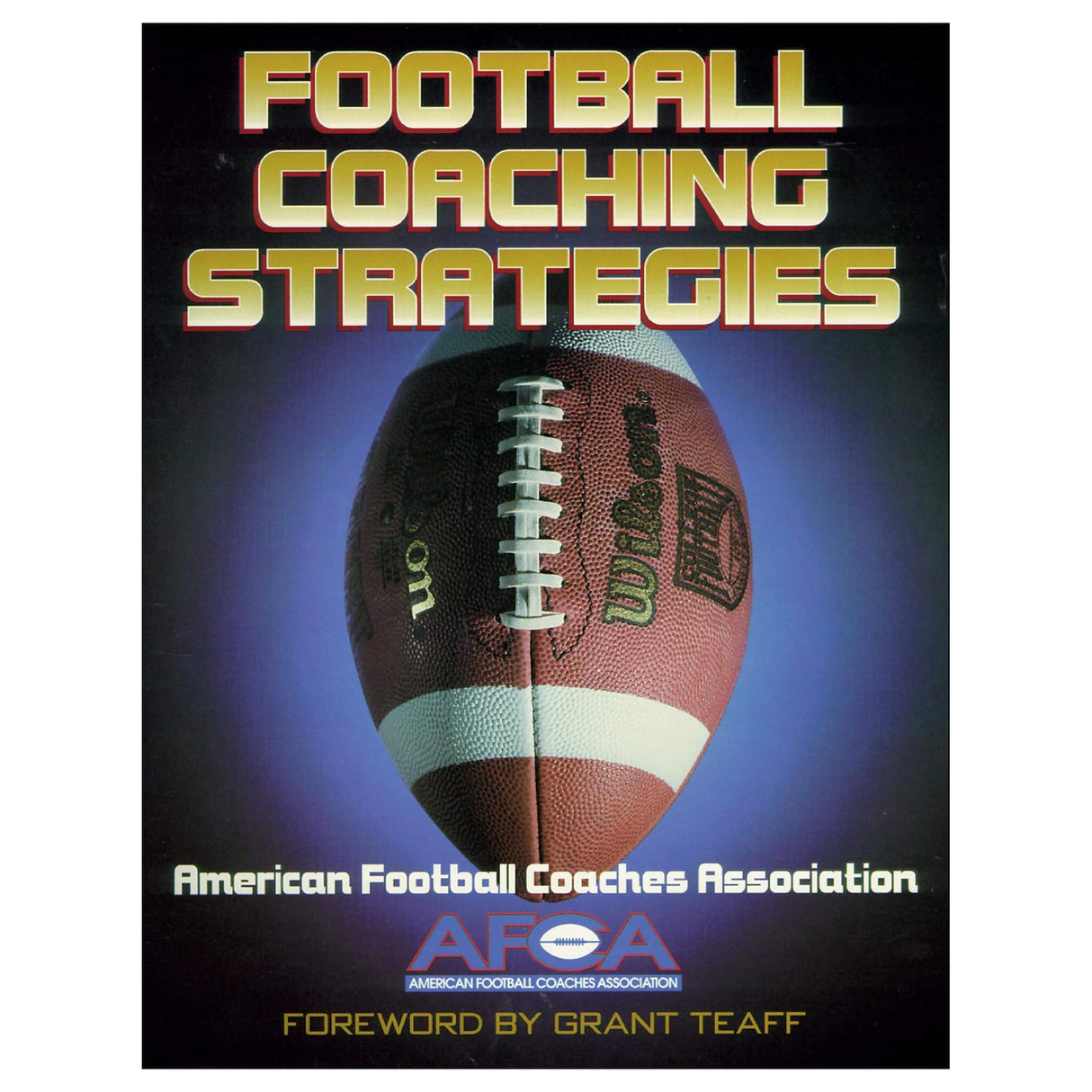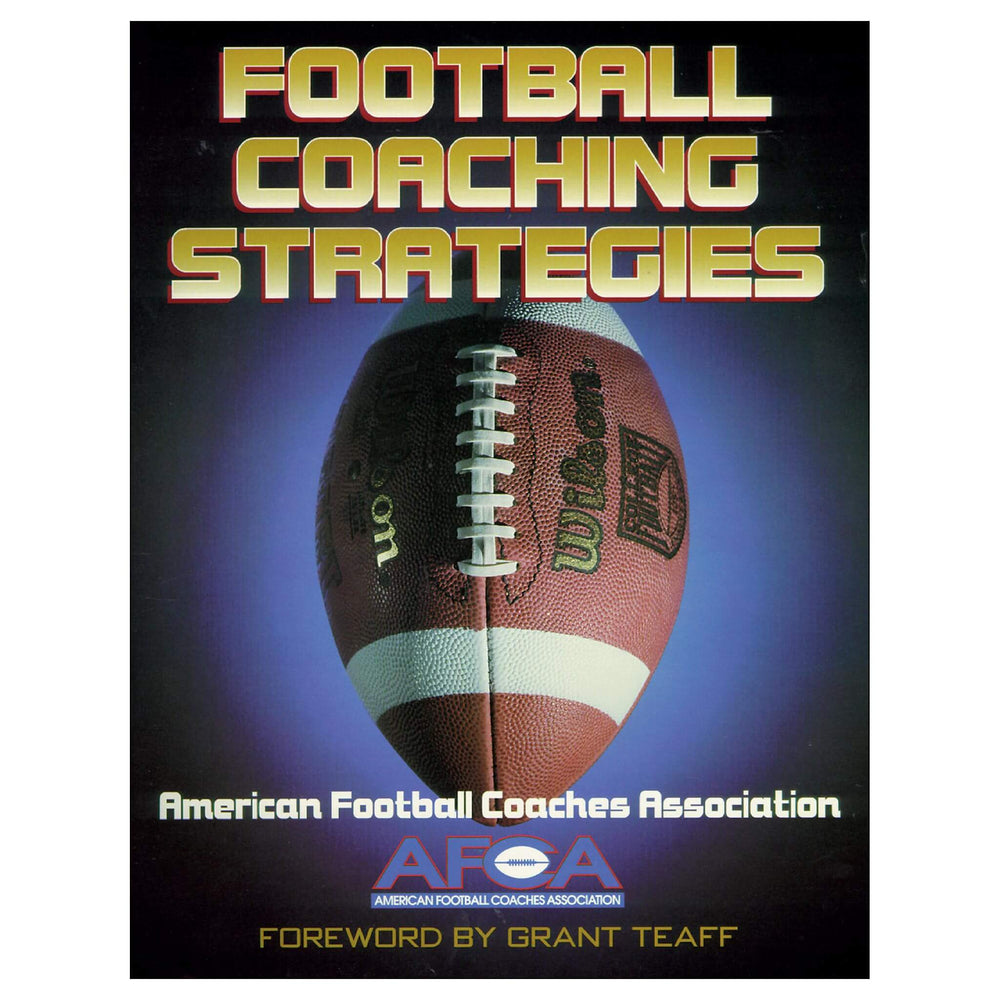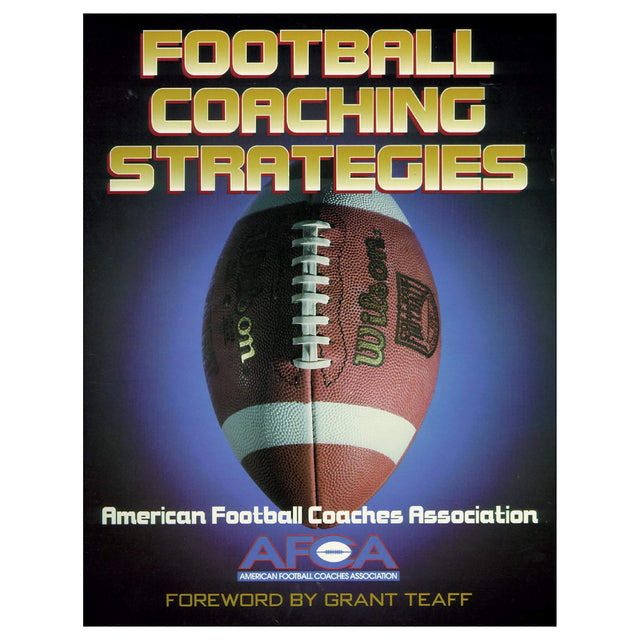Football Coaching Strategies
$21.95 USD
In Football Coaching Strategies you'll find 349 detailed diagrams showing a variety of offensive attacks, defensive packages, and special team tactics—accompanied by useful advice from the experts.
Best of all, the coaches are the recognized experts in the topics they cover. For example, read how these coaches explain game strategies and underlying principles:
- Running game—Tom Osborne, John McKay, and Darrell Royal
- Passing game—Bill Walsh, Steve Spurrier, and LaVell Edwards
- Defense—Dick Tomey, Barry Alvarez, and Dave Wannstedt
- Kicking game—Spike Dykes and John Cooper
- Philosophy, motivation, and management—Eddie Robinson and Joe Paterno
Football Coaching Strategies blends the invaluable lessons of the past with the best thinking in today's game. With it, you'll find the key elements for a winning game plan—on and off the field. It's the one book that every serious football coach, player, and fan will treasure.
Part I features 28 articles on offensive football. The running and passing game sections present multiple formations and attacks. From the wishbone to the spread and from the conservative to the wide open, it's an offensive coordinator's smorgasbord of options. As a bonus, several articles focus on specific aspects of offense, such as pass blocking, reading the defense, and play selection in key game situations.
The 19 articles in Part II include a variety of defensive alignments and philosophies. From a stunting 4-3 to an all-purpose Eagle, coaches outline the assignments, strengths, and weaknesses of several defensive packages. Methods for stopping the run and pass are described and illustrated in detail. In addition, coaches break down defensive player position responsibilities against common running and passing attacks.
Special team play is taught through seven articles comprising Part III, each covering an important facet of the kicking game. Kick-off, punt, and extra point situations are analyzed from both sides of the ball. If you want to cover, return, or block a kick, punt, or field goal attempt, you'll find complete explanations and illustrations to do so.
Part IV may be the most memorable and important section of the book. Here several of the all-time greatest coaches share the insights, values, and methods that have made them so successful. The 13 articles capture the intangibles of coaching greatness—philosophy, motivation, and management.
"Equal to a master's degree in coaching, this book will benefit the rookie as well as the veteran coach. A must for those who want to improve their coaching skills.”
Gene Stallings
Former Head Football Coach
University of Alabama





